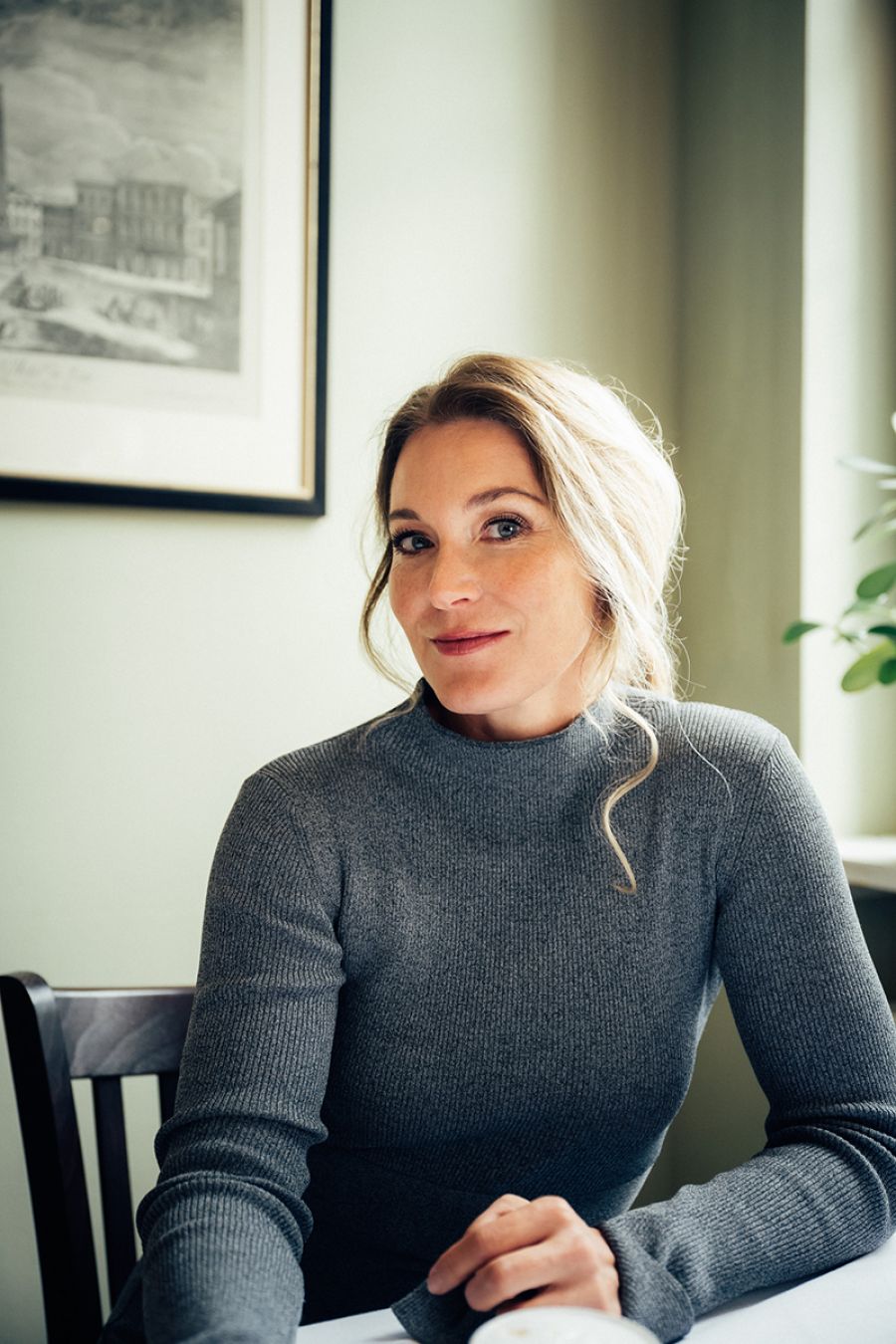Maria Bengtsson – Mein Seelenort: Das Café Wildau am Werbellinsee - Deutsche Oper Berlin
Aus Libretto #8 (2023/24)
Maria Bengtsson – My private place of peace: Café Wildau, Werbellin Lake
Café Wildau on the shore of the Werbellinsee reminds Maria Bengtsson of her native Sweden – and she has a very particular ritual
My special retreat is Café Wildau on the shore of the Werbellinsee, about an hour by car north of Berlin. My husband and I stumbled on the lake when we arrived in Berlin in 2002, long before the children were born. We kept going back, usually in the summer for the swimming and sailing but also in the winter for the long walks by the water. I grew up in Höllviken right on the Øresund in southern Sweden, the strait the separates Sweden from Denmark. I spent half my childhood on sailing boats, so my ties to the sea are strong and I’m used to staring at the horizon. You don’t get that on the Werbellinsee, but they still have things in common, like large expanses of water and a degree of calm.
A few years later, for my 35th birthday, my husband treated me to a weekend at Café Wildau. Attached to the café is a small hotel with cute little rooms at the south-western end of the elongated lake, right on the shore, complete with garden sloping gently down to the water and a small jetty. Anyway, on that weekend we discovered the campsite a stone’s throw away – and resolved then and there to bring my grandmother’s old caravan over from Sweden and settle down here for good. Which is how we’ve come to be permanent residents on the banks of the Werbellinsee for the last 14 years. Whenever we have the time, we head out to our place on the lake with our two children.
Over the years I’ve even managed to win my family over to the idea of ice bathing. In Sweden it’s the elder generation who tend to be the people taking a daily dip in the Baltic; my dad is still doing it at 82. And it’s become something of a ritual for us too. I almost feel guilty if I go a day without my cold immersion. The cold gives you a lovely feeling of physical wellbeing that lasts the whole day. Amazing, considering that I’m quite sensitive to the cold.

In the late afternoon, when we’re done with the ice bath, we always head for Café Wildau, where it all began for us. And there’s strictly no talking shop when we’re there. I spend enough time on my own in the course of my work, getting lost in my own thoughts; when I’m out here I just want quality time with my loved ones. I’ve actually never been here on my own. It occurred to me recently when I was out walking that Christine in Strauss’s INTERMEZZO would like it here. The role is not part of the standard repertoire, so I’ll have to swot up on it. Christine’s a nature lover, too, and quite into long walks, so that gives me my ‘in’ into her character.
Another thing about the libretto niggles a bit, I have to say. Strauss based the Christine character on his own wife, Pauline. He paints her as an irascible, nagging woman who’s jealous for no reason, horrible. Yet Pauline herself had been a singer before giving it all up to support her husband’s career. And by way of thanks she gets this dubious appearance in one of his operas? One scene in particular gets my goat, when Pauline is complaining of boredom at being his domestic dog’s body. No surprises there: any artist would be bored stiff! And his attitude is »You can’t seriously call that work«. It’s the classic debate over care work versus intellectual work.
That said, in real life they were a loving couple and the marriage lasted. And in INTERMEZZO we also get glimpses of another Christine: elegant, clever, quick-witted in conversation. I’d like to convey some of those qualities on stage.
Musically, Christine is uncharted territory for me. It’s the biggest and most complex role I’ve done to date, with its constant switching between short, quick and drawn-out, lyrical phrases. But the amount of parlando is what makes it stand out. Text that lies on a spectrum between sung and spoken, sometimes to musical notes, sometimes delivered as an actor would. These bits take a lot of rehearsing so that they gel with my physical movements. It’s a real challenge and I love it.





